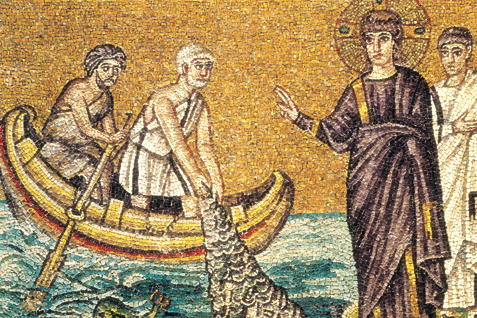THEODORE OF HERACLEA:
In this way, by his speech, Christ had so disposed their souls that they had even become self-forgetful and had taken no care to provide for food or other inevitable needs. They had not grown weary, even in the desert, of being with Christ. But Christ understood the weakness of our nature and that we require food for the health of our bodies. He makes preparation even for this, that it might be evident that he is concerned not only about our souls but about our bodies as well. For he himself is the Creator of both soul and body.


